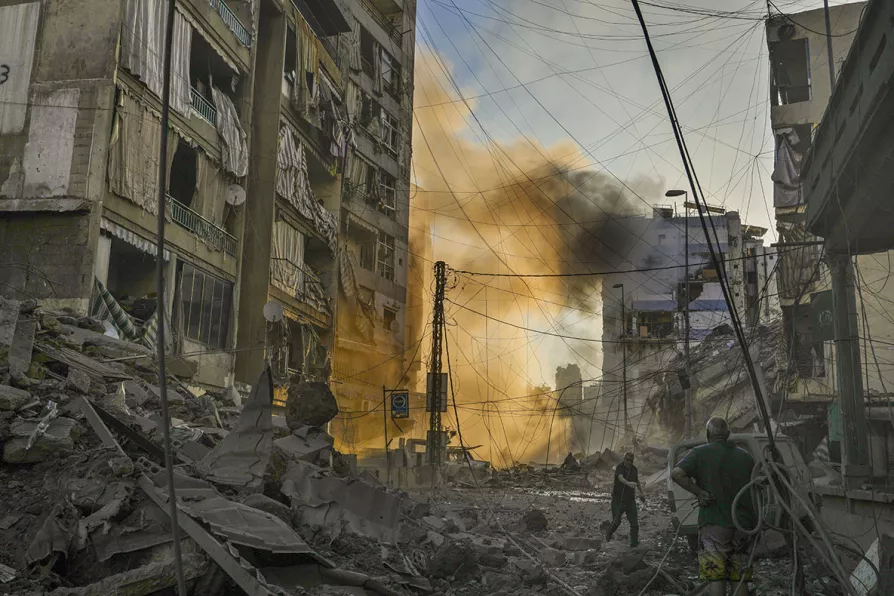Tens of thousands to mark year since Israel began its genocidal assault on Gaza

 A man runs for cover as a smoke raises in the background following an Israeli airstrike in Dahiyeh, Beirut, Lebanon, October 4, 2024
A man runs for cover as a smoke raises in the background following an Israeli airstrike in Dahiyeh, Beirut, Lebanon, October 4, 2024
TENS of thousands will march through Londonon Saturday to mark one year since Israel began its genocidal assault on Gaza.
Protesters are demanding that the British government end all arms sales to Israel and impose sanctions to press Tel Aviv to end its attacks on Palestine and now Lebanon, as it looks set to ignite a wider regional war.
The march will leave from Russell Square at midday.
Similar stories














